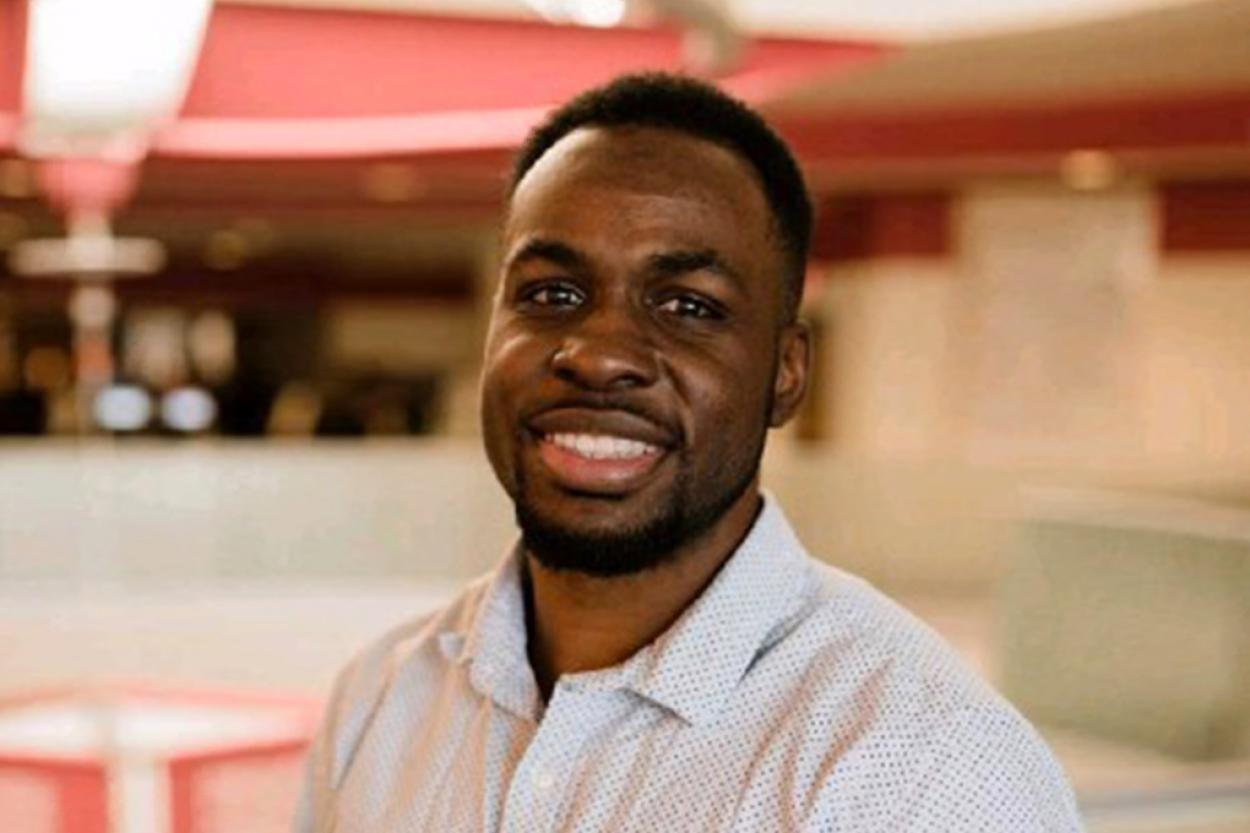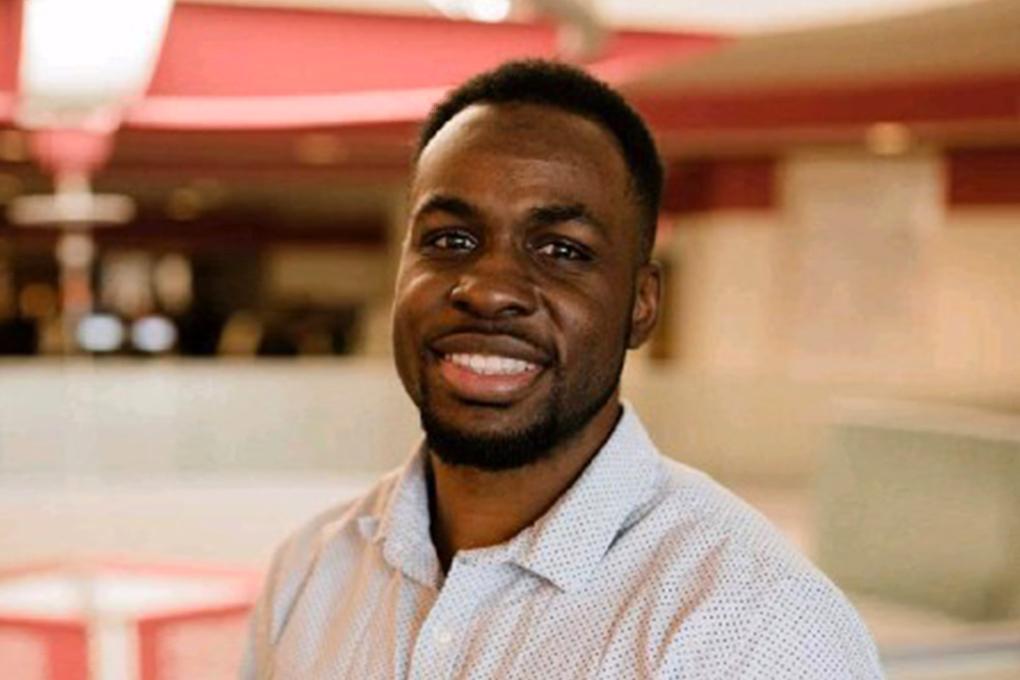
Article by Jose Villalpando '23
In May 2018, Michael Tross walked off Doane’s Crete campus with a newly minted degree in biology and confidence in his abilities and future. But he’ll be the first to tell you, he didn’t do it alone.
It was through the support and encouragement of his professors, Doane staff, and his coaches on the track and field team, that he found a home away from home and a path that set him toward graduate school. He named Dr. Tessa Durham Brooks, associate professor of biology, Dr. Lyn Forester, former dean of the College of Education and professor emeriti, and Ed Fye, head track and field coach, as several mentors from throughout the Doane community.
“All the other coaches, the whole biology department and Doane in general [helped] mold me into the person I am today,” Michael said.
Hailing from the Caribbean, Tross was given the opportunity to come to Doane by Fye. With this, not only did he experience a drastic change in scenery, but Tross had to adjust to a different education system.
It was a lot to take in. But there were people ready to lend a hand.
“[Dr.] Tracee Fairbanks [assistant professor of math] and [Dr.] Andrea Holmes [professor of chemistry] [helped] me get used to the American education system my first year at Doane when it was very overwhelming for me after coming from the Caribbean,” he said. “I thank them a lot for making it very comfortable for me upon first coming to the United States.”
While at Doane, Tross participated in track and field, the Fellowship of Christian Athletes (FCA), Cru, worked on the events coordinating team and at the help desk, and more. In short, he dived into as many campus activities as he could.
But he said he found the most fulfillment from working in two programs under Brooks’s mentorship — the Established Program to Stimulate Competitive Research (EPSCoR) and the Digital Imaging and Vision Applications in Science (DIVAS) project.
EPSCoR and DIVAS experiences helped Tross in undergraduate, and now graduate studies
Through EPSCoR, a five-year project called the “Center for Root and Rhizobiome Innovation'' was started at UNL to bring researchers from across Nebraska together to study the interactions between roots and soil microbes, and how those interactions promote plant and soil health. Tross initially joined EPSCoR through helping a lab technician. Through hard work, though, he began his own project within the program.
“While I was in [EPSCoR], Tessa and some other faculty members started the DIVAS Project,” he said. “[This project] taught us programming skills that could be applied to biology to help solve algebra problems.”
The DIVAS project was created to help students studying natural sciences learn coding and computer programming to answer research questions. Tross applied these skills to his capstone research project at Doane — whether seed size impacted the amount of exudate (microbes secreted by or attracted to the root of a plant).
“One of the traits I work to foster in all of my students is curiosity, and Michael really grew in this way over the time I worked with him,” Brooks said. “No matter how stuck, Michael persisted in his code development [and would] put long hours into making many manual measurements to test the accuracy of his code.”
In pursuing his Ph.D., Tross has seen exactly how much his EPSCoR and DIVAS work at Doane grew his interest in programming. In fact, he continued to use those skills during lab rotations, and uses them actively as a member of the Schnable Lab, led by Dr. James Schnable at UNL.
Conferences, publications and mentoring future researchers
Tross has accomplished much in a short period. As a student and Ph.D. candidate, he’s spoken at the Machine Learning for Cyber-Agricultural Systems conference, the North American Plant Phenotyping Network conference and the Maize Genetics conference, to name just a few. His most recent talk was for Corteva Agriscience, which held a research symposium at the corporation’s headquarters in Indianapolis for its Developing Emerging Leaders and Talent in Agriculture (DELTA) program. He presented to other undergraduate, graduate and postdoctoral students within the agricultural field.
“[Conferences] are a little bit scary,” he said. “I think I underestimate myself up until the moment I’m actually starting the talk, when I remember that I actually do know all of this stuff. I always learn more and get a bit better from the feedback I get after each talk.”
Tross also counts publishing his first research paper among his accomplishments. His paper, “3D reconstruction identifies loci linked to variation in angle of individual sorghum leaves,” was pre-printed in June, 2021 in bioRxiv and officially published by PeerJ Publishing in December, 2021.
It’s a major achievement. Tross said it’s not easy to get published while working toward a Ph.D. But he’s even more proud of what came prior to the publication — the opportunity to mentor a high school student early on during his graduate studies.
“I think that my biggest accomplishment thus far was being able to mentor that high school student while writing my first paper. She was able to have her name on a published paper right out of high school,” he said.
Tross is now working toward finishing his second research paper by the end of 2022 or early 2023, focusing on artificial intelligence applied in the agricultural field. He was also recently awarded a fellowship from Corteva Agriscience's DELTA program.

